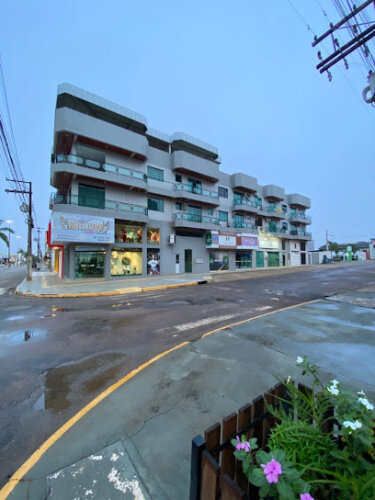Best Faith-Based Law Lawyers in Vilhena
Share your needs with us, get contacted by law firms.
Free. Takes 2 min.
List of the best lawyers in Vilhena, Brazil
About Faith-Based Law in Vilhena, Brazil
Faith-Based Law in Vilhena, Brazil refers to the varying legal issues that arise in relation to religious organizations, faith-based entities, and individuals practicing their faith in compliance with local, state, and national laws. While Brazil is a secular state with legal guarantees for religious freedom, faith-based law addresses the specific intersections between religious beliefs and legal requirements. In Vilhena, a city in the state of Rondônia, these laws establish how religious organizations operate, interact with governmental regulations, and deal with internal and external disputes.
Why You May Need a Lawyer
Legal matters involving faith-based organizations or religious individuals can be complex. You may need a lawyer experienced in faith-based law in the following situations:
- Registering a new religious institution or nonprofit organization
- Ensuring compliance with local, state, and federal regulations
- Handling property disputes involving religious sites or assets
- Resolving employment issues within religious organizations
- Defending or asserting religious freedoms and rights in public or private settings
- Managing taxation or fiscal matters for religious groups
- Mediating internal community conflicts or disciplinary procedures
- Addressing discrimination or intolerance related to religious beliefs
Local Laws Overview
In Vilhena, the legal treatment of faith-based organizations is informed by both Brazilian Federal Law and specific local regulations. Here are key points relevant to faith-based law:
- Brazil’s Constitution guarantees freedom of religion, ensuring that people and organizations can practice and organize without interference, provided laws are followed.
- Religious organizations may register as legal entities (nonprofits) to gain rights such as property ownership, bank accounts, and tax exemptions.
- Local municipal laws may set requirements for permits, construction, or noise related to places of worship.
- Employment law applies to faith-based organizations, though some exceptions may exist concerning roles directly related to ministerial functions.
- Anti-discrimination statutes protect individuals from religious discrimination in workplaces, schools, and public services.
- Tax exemptions are available under certain conditions for religious institutions, but proper documentation and compliance are required.
- Civic spaces and public events must respect religious diversity, while religious groups also have obligations to respect public order and safety regulations.
Frequently Asked Questions
What rights do religious organizations have under Brazilian law?
Religious organizations have the right to organize freely, own property, receive donations, and operate according to their faith’s principles, as long as they comply with relevant laws and regulations.
How can I register a new religious institution in Vilhena?
You must prepare a founding document or bylaws, assemble the required documentation, and register with the local civil registry (Cartório de Registro de Pessoas Jurídicas). You may also need to register with tax authorities.
Are religious organizations exempt from taxes?
Yes, under federal law, churches and religious institutions are generally exempt from certain taxes, but proper registration and documentation are required.
Can a religious organization fire an employee based on religious doctrine?
While organizations can set faith-based standards for some roles, general labor protections apply. Any dismissals must comply with local labor laws, except in certain cases involving ministerial or religious roles.
What should I do if my religious rights are violated in Vilhena?
You can file a complaint with local authorities such as the Public Prosecutor’s Office (Ministério Público), or seek legal assistance from a lawyer familiar with faith-based law.
Do religious organizations need special permits for events or building construction?
Yes, depending on the event size or construction project, you may be required to obtain permits from the local government and adhere to noise, safety, and zoning laws.
Can anyone form a religious group?
Yes, Brazilian law protects freedom of association and belief, so anyone can organize for religious purposes, provided they comply with legal requirements for establishment.
Are there local regulations regarding religious expression in public spaces?
Public expression is generally protected, but actions must respect public order, noise restrictions, and the rights of others. Vilhena may have specific municipal rules regarding use of public spaces.
How are internal disputes settled within religious organizations?
Most organizations have their own procedures but Brazilian law allows recourse to courts or mediation if internal mechanisms fail, especially when property or legal rights are involved.
Where can I get help drafting bylaws or legal documents for my faith-based organization?
An attorney experienced in faith-based law can assist, ensuring compliance with all local and federal legal requirements.
Additional Resources
Consider reaching out to the following resources for information or support regarding faith-based legal matters:
- Ministério Público do Estado de Rondônia: The local Public Prosecutor’s Office can advise or take action in cases involving religious rights or discrimination.
- Cartório de Registro de Pessoas Jurídicas de Vilhena: The civil registry office where legal entities, including religious organizations, are registered.
- Municipal Government of Vilhena: For permits, zoning, and public event requirements related to religious activities.
- Conselho Nacional de Justiça (National Justice Council): Provides information about nationwide judicial standards and rights.
- Local Bar Associations: Can provide referrals to attorneys with experience in faith-based law.
- Religious Liberty Advocacy Groups: Some organizations offer guidance or legal support for religious freedom cases.
Next Steps
If you need legal assistance in the area of Faith-Based Law in Vilhena:
- Identify the specific legal issue you are facing, such as registration, compliance, employment, or dispute resolution.
- Gather all relevant documentation, such as founding documents, correspondence, or details about the issue.
- Contact a qualified attorney with experience in faith-based legal matters in Vilhena. The local bar association or the resources listed above can help you find one.
- If urgency or rights violations are involved, consider contacting the Public Prosecutor’s Office or filing a complaint with municipal authorities.
- Educate yourself about your rights and obligations under both federal and municipal law to strengthen your position.
Professional legal guidance is essential to protect your rights, ensure compliance, and resolve disputes effectively in matters related to faith-based law in Vilhena, Brazil.
Lawzana helps you find the best lawyers and law firms in Vilhena through a curated and pre-screened list of qualified legal professionals. Our platform offers rankings and detailed profiles of attorneys and law firms, allowing you to compare based on practice areas, including Faith-Based Law, experience, and client feedback.
Each profile includes a description of the firm's areas of practice, client reviews, team members and partners, year of establishment, spoken languages, office locations, contact information, social media presence, and any published articles or resources. Most firms on our platform speak English and are experienced in both local and international legal matters.
Get a quote from top-rated law firms in Vilhena, Brazil — quickly, securely, and without unnecessary hassle.
Disclaimer:
The information provided on this page is for general informational purposes only and does not constitute legal advice. While we strive to ensure the accuracy and relevance of the content, legal information may change over time, and interpretations of the law can vary. You should always consult with a qualified legal professional for advice specific to your situation.
We disclaim all liability for actions taken or not taken based on the content of this page. If you believe any information is incorrect or outdated, please contact us, and we will review and update it where appropriate.









